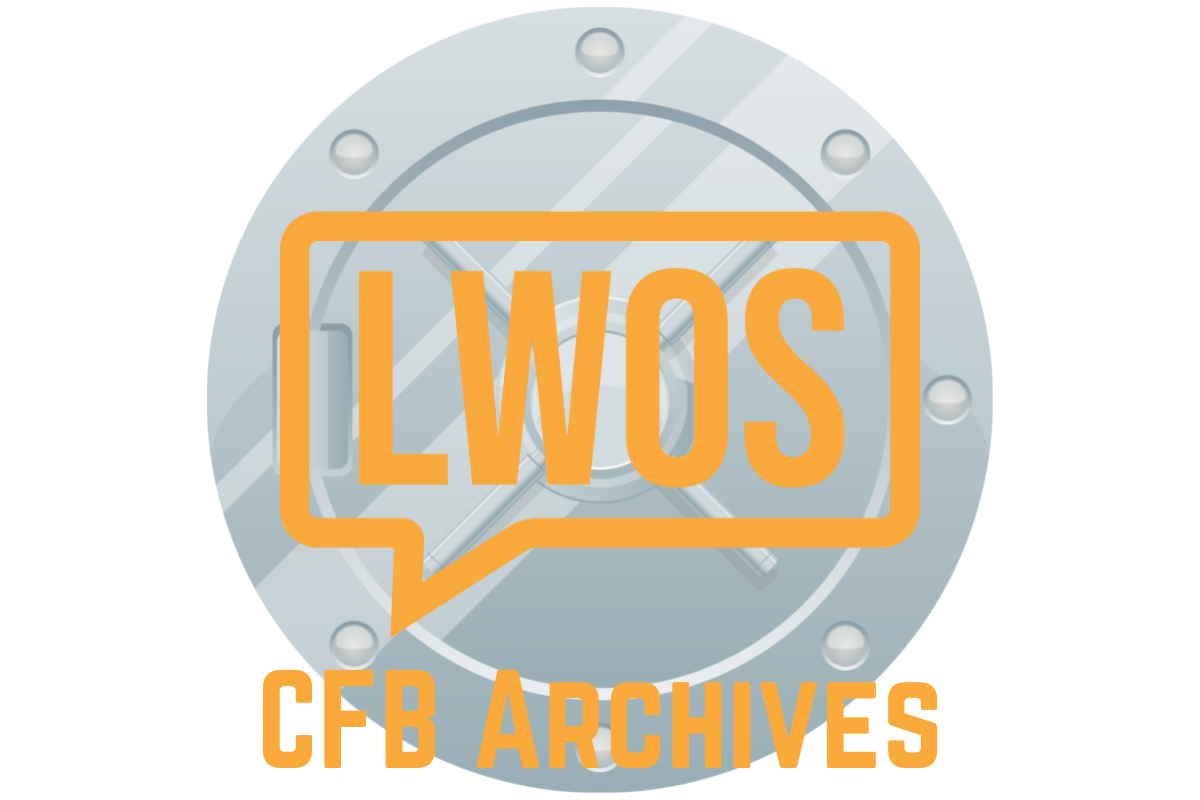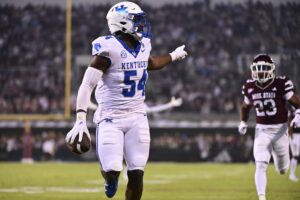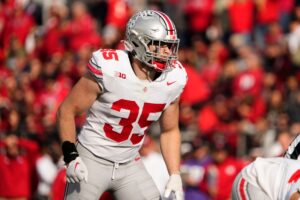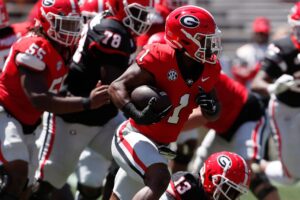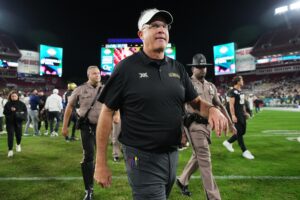Anyone following sports, college sports, or just life in general in the United States right now knows these are unprecedented times. NCAA President Mark Emmert made that clear Tuesday morning when he declared, “We are not going to be able to do things as business as usual.”
Emmert held a conference call/webinar Tuesday sponsored by the College Sports Information Directors of America, (CoSIDA).
NCAA President Mark Emmert – No Business As Usual
Emmert reflected back on the shutdown of Winter and Spring sports. It started with conference basketball tournaments, and the NCAA’s March Madness. He said the driving force behind the decision was a lack of available testing as it was clear the virus was spreading. Emmert said there was no way to test all the athletes as needed in a fashion to consider continuing.
He said with testing more prevalent on a large scale now, he is hopeful Fall sports can be better tested. Most conference and school officials across the country are recognizing that the situation is fluid on a weekly, if not daily basis. Emmert pointed out that within a week of some athletes being back on campus for training for the Fall, several schools have reported positive tests. Already, Alabama, Oklahoma State, Ole Miss, and Auburn have players who have tested positive.
Since the virus has a two-week incubation period, those are more likely from exposures prior to returning to campus. Still, he said, it allows those schools to work on isolating players, treating the virus, and testing for any wider exposure. Of course, from a size of scope standpoint, that pales in comparison to what schools will have to do when the general student population is also back on campus.
Timing Of College Football
Emmert went over the details of the new NCAA timeline that would allow the college football season to start on time. They had previously proposed a plan that mirrored the CDC stages plan. This new four-phased plan includes six weeks of mandatory workouts with preseason training camps starting in August. The earliest coaches could start interacting with players is July 6 for teams that start the season in Week 0. It would be July 13 for those games scheduled over Labor Day Weekend. Essentially, practice could start 29 days before a team’s season opener. Right now, players are allowed back on campus for voluntary workouts. But that all comes with a big caveat. The NCAA has approved those timelines, but they have no authority where it comes to state laws/guidelines/regulations for re-opening.
“This is all happening under different state rules, different county health rules. Each campus has got to decide what works for them. That makes it very, very challenging to plan and schedule post rules and policies on a national level.”
Emmert acknowledged the state by state differences in the virus’ impact. As a result, there is a varying degree of readiness. He said the NCAA is trying to provide, “as much flexibility as possible,” when it comes to guidance. “if they (a conference), has some schools that aren’t playing sports, and some that are, you can’t run a regular schedule. So therefore, how do you program in championships, whether they are conference championships or national championships? How do you set up qualifications for those various championships? “We are not going to be able to do things as business as usual.” Emmert described it as “working on the fly,” with schools to determine best practices, and safety measures for the student-athletes.
Students In The Streets
It is impossible to ignore the conflagration of events. There is the pandemic, the shutdown, and now the marches in the streets in cities across the country.
Emmert said he supports players taking on roles in social justice issues. “This is a wonderful time to remember that college sports are just that; they are sports that happen on colleges with college students, and college athletes are part of the student body. We should expect and provide support for them to be like the rest of the student body which is typically very engaged.”
This was atypical of the general reputation of the NCAA as a step-carefully, traditionalistic body. Emmert said they, and the schools have an obligation to the student-athletes in the social justice arena. “We all, as individuals, owe it our colleagues, and certainly our students, to actively listen and understand what people’s issues are, and provide opportunities and space just for that. It’s hard for many us to know and understand other people’s perspectives and what their real life looks like and how they see and understand what’s going on around them.”
Emmert made it clear he does not support the looting or any physical damage in the protests. But he advocated the student-athletes, as part of a an educational environment, to be guided on how to express their voices in these turbulent times. “Let them get out on a limb and then have the limb sawed off behind them, you know, that’s the worst thing that could happen. We need to be supportive of them on how they can most effectively engage.”
What’s Next?
It’s entirely possible that the marches, with or without masks, will cause another uptick in COVID-19 cases. That also is likely to hit some states more than others. Just another question to be asked in two to three weeks when it comes to the viability of opening the college football season on time.


